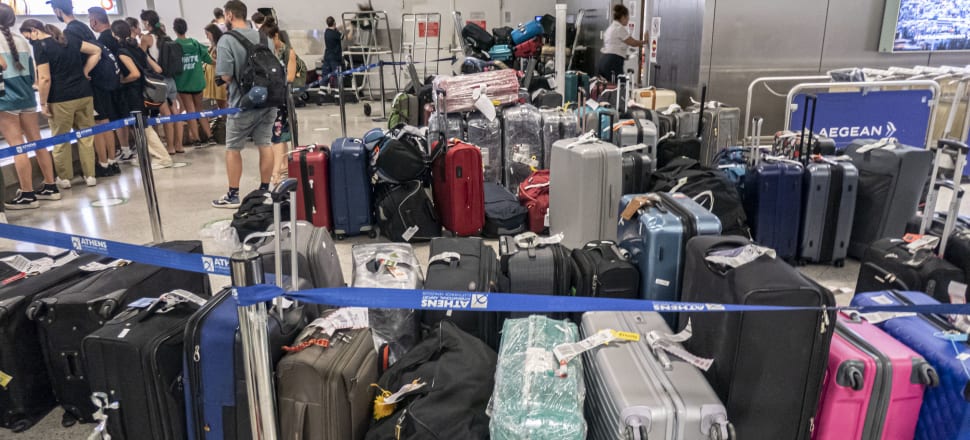
Booking an overseas holiday? Flyers beware - the post-pandemic travel boom is causing chaos in airports around the world.
The stampede back to international travel is happening faster than airlines can cope with.
The result: cancelled flights, lost baggage and frustrated travellers.
As the world opens up again, tales of missing bags and the rigmarole involved trying to track them down are becoming legendary.
So far, Americans heading to Europe for summer appear to be the worst affected - but Kiwis who've had to transfer flights to get anywhere are also discovering it's not necessarily the smooth process it was pre-pandemic.
"There is far less of a problem with luggage going missing than there used to be because of the technological changes that have occurred and the tightening up of security," says the E Tu union's Head of Aviation, Savage.
"But what the pandemic has done is put so much strain on the aviation industry that people are starting to experience something that used to be a lot more common, which was the lost and missing bag."
And - he predicts things will get worse for us as we head into the Northern winter, and tourists flock our way.
The Detail looks at the myriad reasons that have culminated in this situation - but basically they boil down to not enough staff.
"There is a definite problem at the moment with the amount of bags that are not arriving in New Zealand," says Savage.
"As far as we can tell from a union point of view the problems are not occurring at Auckland Airport, but they're occurring at overseas airports.
"Anecdotally what I've been told is that at one point, one of the ground companies had around 900 bags that they were trying to reunite with their passengers. So that's become a common problem at the moment - mistakes overseas, bags arriving after the passengers, and then a build-up of bags at the airport as they then try to track down the passengers and reunite them with their bags."
He says the problems are primarily related to the shutdown of aviation over the lockdown and the resulting labour market problems as the industry starts to rebuild.
"There's a real recruitment problem at the moment in the industry," Savage says.
"There used to be a queue of people waiting to join these companies. And there is not a queue right now."
That's led to situations such as a recent flight from Hawaii arriving in Auckland where only one person was available to unload the bags from an A330. That person has since quit and found a new job at the airport.
Airlines are in debt, and many of those people who used to work at the airport as check-in staff, cabin crew, loaders or ground support officers have been lured away to better jobs with better pay and hours.
"So the aviation employers are having to increase their pay rates in order to try and attract people - they're finding that harder and harder to do," Savage says.
"In particular they have a barrier to employment because you can't just take someone off the street and stick them on a baggage belt. They have to go through quite stringent safety and security training in order to be an airport worker because you're working at the border."
Then there's the current delay to get security cards, for many of the same reasons.
On top of that, the employees airlines do have are sick more often or are having to isolate.
"Just every part of the system is under pressure and that has a flow-on effect. And for customers that results in delayed and disrupted travel, and lost and missing bags."
Savage's advice for travellers in the next six months?
"Travel light, make sure you've got really good insurance just in case...and just be patient with airport workers. I know it's really frustrating when you're travelling but don't take it out on the cabin crew and don't take it out on the ground staff, they're often working under quite pressured conditions.
"Get there early, be patient, make sure you mark up all your baggage properly ..... or maybe don't go overseas!
"Stay in New Zealand and enjoy the New Zealand summer."
Find out how to listen and subscribe to The Detail here.
You can also stay up-to-date by liking us on Facebook or following us on Twitter.








